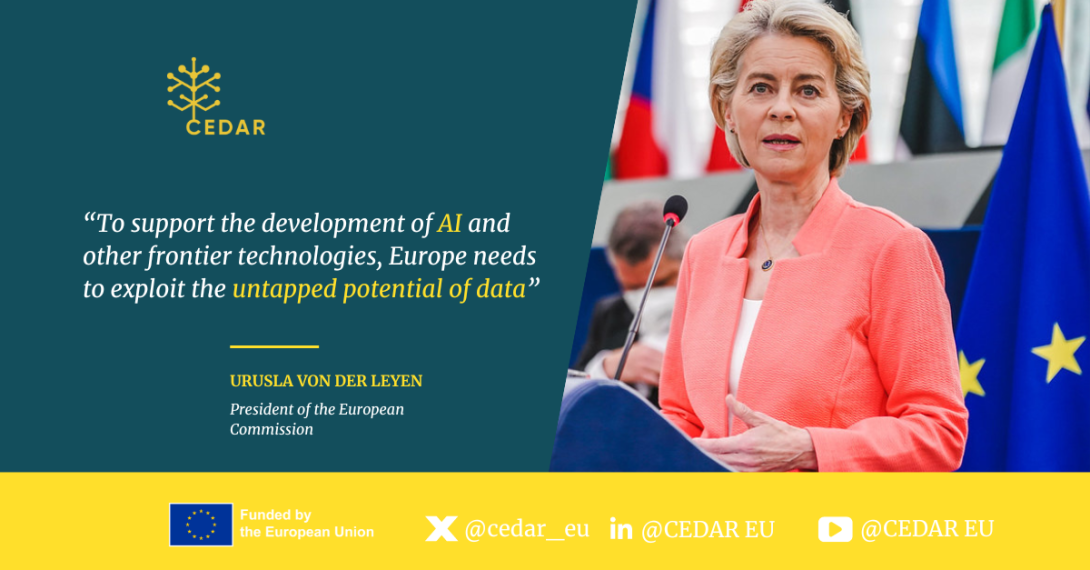
On July 18, the European Parliament elected Ursula von der Leyen as President of the European Commission with 401 votes in favour through a secret ballot. In her political guidelines for the 2024-2029 European Commission, von der Leyen outlines various priorities for the EU's new chapter.
Among these priorities, she emphasises the critical need to boost productivity through the widespread adoption of digital technology, particularly focusing on data exploitation as a key instrument for Europe's future.
“To support the development of AI and other frontier technologies, Europe needs to exploit the untapped potential of data. Access to data is not only a major driver for competitiveness, accounting for almost 4% of EU GDP, but also essential for productivity and societal innovations, from personalised medicine to energy savings. However, too many companies in Europe struggle to get access to the data they need while large foreign tech companies use European data to fuel their business.”
The President also stresses the importance of helping businesses, especially SMEs, improve open access to data while maintaining high standards of data protection and privacy.
As she puts it, “Europe needs a data revolution”.
This urgent need to exploit data optimally to enhance societal well-being and increase Europe's competitiveness in the race towards a clean and digital economy aligns perfectly with the objectives of projects like CEDAR. Such initiatives are crucial instruments in achieving the goal of using data to address current emergent challenges at a European level, including environmental and climate issues, ongoing conflicts, fraud, and corruption, thereby enhancing Europe's competitiveness against global rivals.
CEDAR aims to address these issues by establishing an inclusive, federated, and privacy-preserving Data Commons space. This secure and reliable project will facilitate information sharing among stakeholders across multiple domains, ensuring that more data becomes available while maintaining control and transparency for data generators and therefore increase transparency and accountability in European public governance.
It will produce high-quality datasets, innovative DataOps and MLOps technologies, robust machine learning models, user-centric dashboards, and contribute to standardisation and policy recommendations. The project will involve pilot studies in Italy, Slovenia, and Ukraine, facilitating a more data-driven and transparent public sector across Europe.
By focusing on these objectives, CEDAR directly contributes to von der Leyen's vision of a data revolution in Europe. Additionally, the project's emphasis on transparency, accountability, and data-driven decision-making in public governance aligns perfectly with the EU's goals of combating corruption and fraud while promoting innovation and economic growth.
We are thrilled to contribute to one of Europe's most pressing needs through the CEDAR project. By developing cutting-edge data management and analysis tools, we are honoured to play a practical and efficient role in realising the vision of the new European Commission 2024-2029 led by President Ursula von der Leyen. CEDAR's commitment to creating a more transparent, efficient, and data-driven public sector will undoubtedly contribute to strengthening Europe's position in the global digital landscape while addressing critical societal challenges.